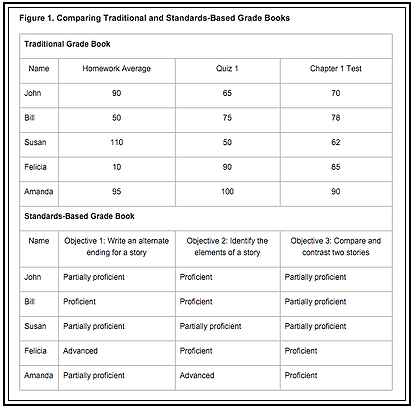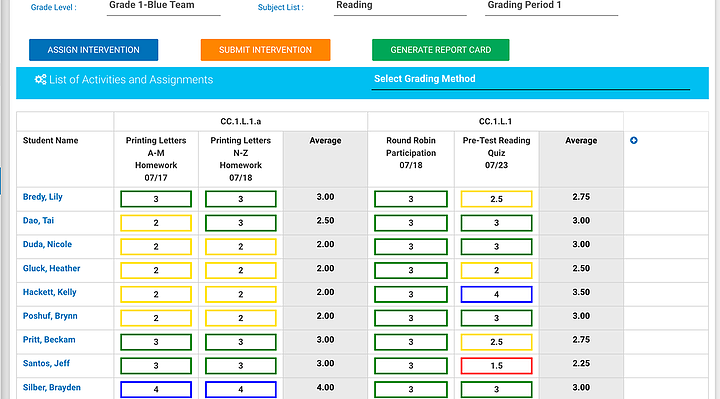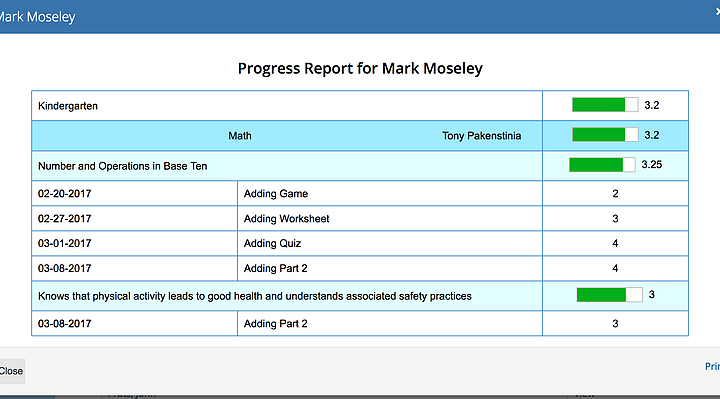WHY STANDARDS-BASED GRADING?
Knowledge is Power
In a standards-based grading system, teachers report how their students are performing in relation to the standards set forth by their State and Common Core State Standards. Students receive feedback regarding how they are performing academically as measured against content standards rather than an overall grade for a course. It is important to note that students receive a proficiency report describing how they are performing in relationship to a standard rather than a grade that is derived from accumulating points, averaging across the term, and assigning a letter value. Standards-based instruction/grading has the potential to provide a rich array of specific and detailed information on a student’s academic progress.

Dynamic Instruction
Imagine two different grade books for the same set of students, as shown in Figure 1. Which one of the two students mastered the learning targets and what do they still need to learn? The standards-based grade book gives a wealth of information to help the teacher enhance their instruction. Students can also see much more information about their learning. In the traditional grade book, Amanda would assume she is in great shape, but standards-based grading reveals that she has not mastered a crucial concept. Gifted and talented students can be truly challenged in a standards-based classroom because, if they show early mastery of fundamental skills and concepts, they can then concentrate on more challenging work that is at higher levels of Bloom's taxonomy or that seeks connections that exceeds the objectives. Students who struggle can continue to retest and use alternative assessments until they show proficiency. They are not penalized for needing extended time to demonstrate mastery of specific learning targets. This can guide students with special needs to modify their work and, if needed, develop different ways of demonstrating that they've mastered their proficiency goals. Their working styles can be easily accommodated in this system because modified assignments and assessments require no special adjustments in the grade book. The grade book simply shows where they are in meeting the standards, without reference to how they are demonstrating their learning or what modifications needed to be made.
Grades Have (Meat) Or Meaning To Them
When students can clearly see the learning goals/purpose for each activity and connect the outcome of those activities to attributes that are within their control, motivation will improve. In other words, when students can see that the level and amount of work they contribute to a learning activity is directly related to the outcome, they will be empowered and encouraged to work hard. When gifted students are given opportunities to demonstrate advanced understanding and knowledge and have that information reported as being advanced beyond those students who have demonstrated grade level proficiency we expect their motivation to increase. When teachers are able to identify specific skills that students are lacking and provide targeted interventions to quickly remediate those skills and help children reach a level of proficiency on those content standards, their motivation will increase. However, students who are motivated by academic competition with their peers may become frustrated or less motivated when they are measured against a standard rather than a peer.



